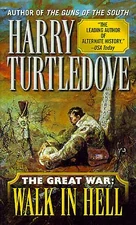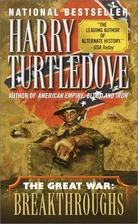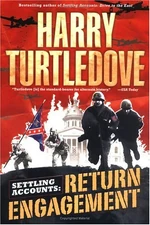| First Battle of the Marne | |||||||
|---|---|---|---|---|---|---|---|
| Part of World War I, | |||||||
|
|||||||
| Belligerents | |||||||
| France United Kingdom | Germany | ||||||
| Commanders and leaders | |||||||
| Joseph Joffre Michel Maunoury | Helmuth von Moltke the Younger |
||||||
The Battle of the Marne (also known as the Miracle of the Marne) was a World War I battle fought between 5 and 12 September 1914. It resulted in an Entente victory against the Imperial German Army under Chief of Staff Helmuth von Moltke the Younger. The battle effectively ended the month long German offensive that opened the war and had reached the outskirts of Paris. The counterattack of six French field armies and one British Army along the Marne River forced the German Army to abandon its push on Paris and retreat northeast, setting the stage for four years of trench warfare on the Western Front.
First Battle of the Marne in Southern Victory[]
A key battle early in the Great War, the Battle of the Marne was downplayed in US newspapers while it was trumpeted in Canadian newspapers.[1] Later, when the US 1st Army was attacking into Kentucky, Major Abner Dowling tried to warn General George Armstrong Custer of the Confederate build up in Hopkinsville, stating that they faced an even bigger embarrassment than the Germans faced at the Marne river if they chose to ignore it.[2]
First Battle of the Marne in The War That Came Early[]
Many German veterans of the Great War still fumed about their defeat at the Marne River back in 1914. Willi Dernen particularly remembered his father cursing about it.
As the Germans tore through the low countries and into northern France they hoped that they would be able to take Paris and wash away the stink of the 1914 defeat. Unfortunately, although they got a lot farther than their fathers did in 1914, it still ended the same way: the French halted the Germans and Paris remained unconquered.
References[]
- ↑ American Front, pg. 146 Paperback.
- ↑ Ibid., pgs. 166-167.
| ||||||||||||||||||||||
















